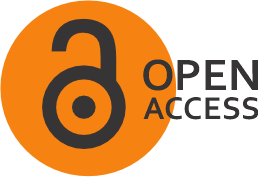The Gen Z Movement in the Face of the Anti-Corruption Crisis

Published online: 18 Jun 2025
Abstract
Purpose: This study aims to analyze the involvement and impact of Generation Z (Gen Z) in the anti-corruption movement in Indonesia. The main focus is to understand how Gen Z, as a generation that grew up in the digital era with high social awareness, participates in efforts to combat corruption.
Research Methodology / Design / Approach: The study uses a qualitative descriptive approach with a comprehensive literature analysis from various sources such as journals, research articles, media coverage, and publications of anti-corruption organizations. Data are systematically analyzed through collection, classification based on key themes, and synthesis to understand the role and contribution of Gen Z in eradicating corruption.
Findings: Gen Z shows an active and innovative role in the anti-corruption movement by utilizing digital technology and social media for campaigns, mass organizing, and raising public awareness. They face various obstacles such as opposition from established systems and limited funds, but remain persistent in their struggle. Gen Z also collaborates with various stakeholders to strengthen accountability and transparency, and emphasizes the importance of anti-corruption education.
Originality / Value: This study provides new insights into the strategic role of Gen Z as agents of change in eradicating corruption in Indonesia. With their creative and technologically advanced approaches, Gen Z offers fresh perspectives and great potential to build more effective and sustainable anti-corruption campaigns, supported by cross-generational and cross-sector collaboration.
References
Anharu, Z. J. (2023). Penerapan Pendidikan Antikorupsi Guna MenciptakanGen-Z yang Berakhlak Terpuji. OSFpreprints, 1.
Anwar, A. (2024). Sosialisasi tentang Peran Gen Z dalam Memerangi Korupsi di SMA Negeri 10 Latuhalat Kota Ambon. Aiwadthu, 89-90. DOI: https://doi.org/10.47268/aiwadthu.v4i2.2168
Christiani, L. C. (2020). Generasi Z dan Pemeliharaan Relasi Antar Generasi dalam Perspektif. Sinta, 85-86.
Dr. Yuli Kristyowati, M. (2021). GENERASI “Z” DAN STRATEGI MELAYANINYA. Ambassadors, 2-3.
Febriyana, D. (2022). Implementasi Pancasila Terhadap Kasus Korupsi yang Terjadi di Indonesia. Gema Keadilan, 5. DOI: https://doi.org/10.14710/gk.2022.16421
Hastini, L. Y. (2020). Apakah Pembelajaran Menggunakan Teknologi dapatMeningkatkan Literasi Manusia pada Generasi Zdi Indonesia? Jamika, 13. DOI: https://doi.org/10.34010/jamika.v10i1.2678
Matang, M., Sapriya, S., Suryadi, K., Darmawan, C., & Anggraeni, L. (2023). Social media as a means for students to become global citizens. Harmoni Sosial: Jurnal Pendidikan IPS, 10(1), 19-31. DOI: https://doi.org/10.21831/hsjpi.v10i1.57729
Putri, K. F. (2024). Persepsi Generasi Z Terhadap Peran Pendidikan Hukum Dalam Membentuk Kesadaran Antikorupsi. Journal On Education, 2.
Sakitri, G. (2021). Selamat Datang Gen Z, Sang Penggerak Inovasi. Forum Manajemen, 4.
Setiadi, W. (2018). KORUPSI DI INDONESIA. Academia.Edu, 249-251.
Suhandi, M. F. (2023). Pendidikan Anti Korupsi Pada Jenjang Perguruan Tinggi. Sanskara Pendidikan dan Pengajaran, 21.
Yoga, K. K. (2022). Kontribusi Generasi Z Dalam Upaya Pencegahan Tindak Korupsi Melalui Membudayakan Gerakan Anti Korupsi pada Era Society 5.0. Prosiding Pekan Ilmiah Pelajar, 622.
Zis, S. F. (2021). Perubahan Perilaku Komunikasi Generasi Milenial dan Generasi Z di Era Digital. Satwika, 70. DOI: https://doi.org/10.22219/satwika.v5i1.15550
License
Copyright (c) 2025 The Author(s). Published by Borneo Novelty Publishing

This work is licensed under a Creative Commons Attribution 4.0 International License.
Permission is granted subject to the terms of the License under which the work was published. Permission will be required if your reuse is not covered by the terms of the License.

